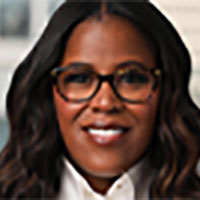The extraordinary life of a prominent Black man and the painful deaths of too many other Black Americans over the past year serve as a stark reminder of the conflicting state of race relations in our nation. This fragile state-of-being points to both the irrefutable progress that we have made in decades past and the undeniably long path still before us in the years ahead as we strive to achieve true equality.
The legendary Vernon E. Jordan Jr. passed away in March, provoking an outpouring of reverence and appreciation from a legion of admirers of all races, genders, ethnicities and political persuasions. A steady stream of tributes were shared by those who knew him and were touched by his grace and assistance and from others – like me – who benefitted from his trailblazing role in the Black community.
Vernon Jordan was born in a segregated time and place:1935 Atlanta. Expectations for young Black men in the 1950s were so limited that even his ability to read shocked the white banker he spent summers driving for. The banker announced to his friends and relatives that “Vernon can read!” Five decades later, Mr. Jordan would make that banker’s words of astonishment the title of his memoir.
Fortunately for us, it turns out that Vernon could do far more than read. He could think, persuade and lead as the Georgia field director of the NAACP, executive director of the United Negro College Fund and president of the National Urban League (the annual report you’re reading began during Jordan’s tenure). He was a confidant to presidents, a prominent lawyer and businessman and a mentor to countless young people whose lives and careers he enhanced by giving lavishly of his time and wisdom.
Listing his accomplishments scarcely begins to explain the impact he had on the generations of Black leaders he influenced. As the Washington Post’s Jonathan Capehart wrote: “He walked in spaces we once never had access to. And because he did, he cleared a path for more of us to follow in his elegant footsteps.”
Watching Vernon Jordan navigate successfully through civil rights, legal, corporate and political circles (Ken Chenault once famously dubbed him “the first crossover artist”) was an inspiration to anyone in the Black community with professional aspirations in the private or public sectors – myself included. His intelligence, courage, perseverance and charm were a reminder and, for some, a revelation of the talent and skills that Black Americans could bring to bear if only presented with the opportunity.
Vernon Jordan did more than open doors; he opened eyes. His contributions to racial equality and our nation are invaluable.
Our pride at the heights Vernon Jordan climbed in his life sharply contrasts with the despair we feel as we mourn the loss of George Floyd, Ahmaud Arbery, Breonna Taylor and Daunte Wright. Their senseless deaths at the hands of police – including those that came before them, and, alas, those who will tragically follow after them – remind us all of just how far we have to go before we can eradicate the implicit and explicit manifestations of racism that infect our society.
The past year was a profoundly difficult one for all Americans, but especially for Black Americans. Multiple crises hit us simultaneously. The coronavirus pandemic and the correlated recession underscored and deepened the longstanding inequities that exist in housing, education, employment and health care.
Yet, amid the anger and pain, there is reason for hope. The converging crises we are struggling through have stirred a cultural awakening reminiscent of the last great civil rights era of the 1950s and 1960s, when the nation finally recognized its failure to approach, much less achieve, the ideals enshrined at its founding and inscribed in its constitution.
That recognition emerged from the ashes of the unspeakable tragedy at the 16th Street Church in Birmingham, Ala., in 1963. And today, another series of tragedies has exposed the racism that has remained unseen by too many. But eyes are opening, and we need to seize this historic moment and move from the promise of equality to its reality.
It’s time to seize on the opportunities that lie before us and renew our commitment to making change happen. The words of the late, great Rep. John Lewis, another giant of the civil rights era we recently lost, are so relevant today. He cautioned us to not “get lost in a sea of despair,” adding that “our struggle is not the struggle of a day, a week, a month, or a year, it is the struggle of a lifetime.” He also reminded us to: “Never, ever be afraid to make some noise and get in good trouble, necessary trouble.”
We can begin by being our authentic selves and encouraging others to do the same. We need to reflect on our past and on how racism has blighted the very institutions that are meant to protect us. We need to educate ourselves and others about the insidious nature of racism so we can end the self-perpetuating cycle of injustice.
We need to fully embrace what it means to be anti-racist. And we need to replace a system of structural racism that has existed for centuries with an ecosystem that achieves racial equality once and for all.
These changes will take all of us working together, aligning the public, private and nonprofit sectors to deliver on the promise that our nation has yet to fulfill.
We have it in our power to channel our pain into meaningful and sustainable change. Let’s build on Vernon Jordan’s example by working together to fix what is broken in our society today – and tomorrow.



